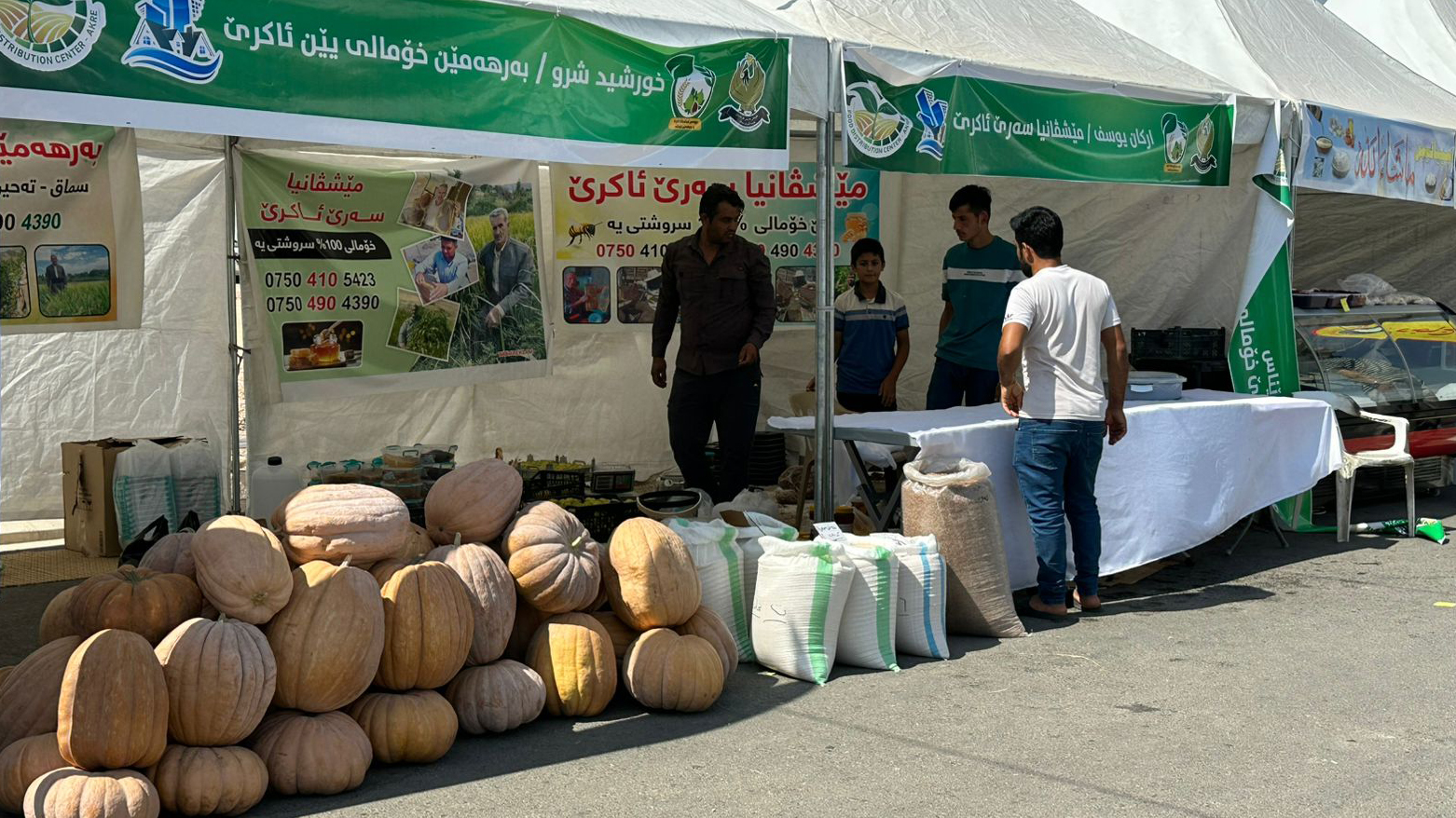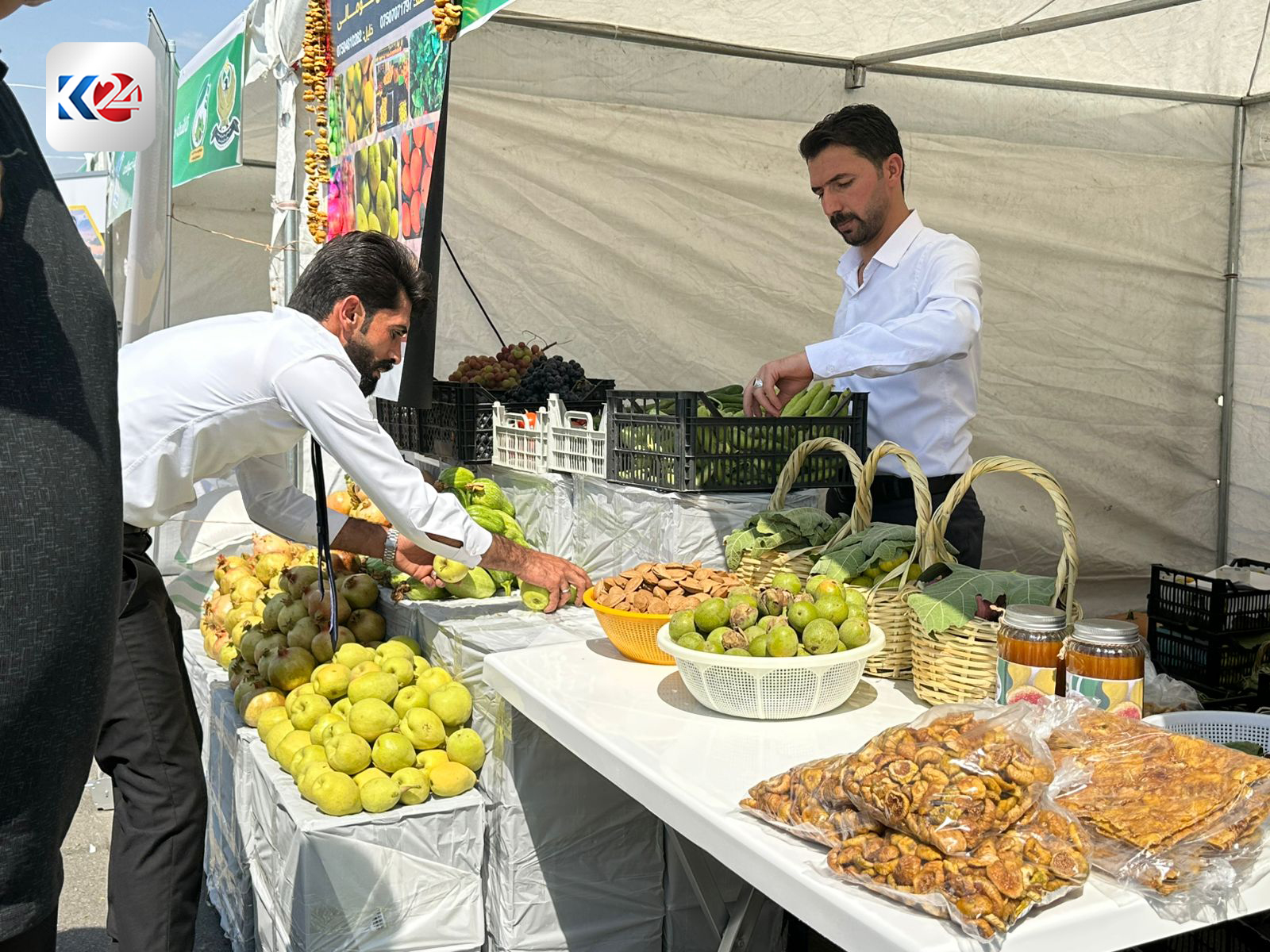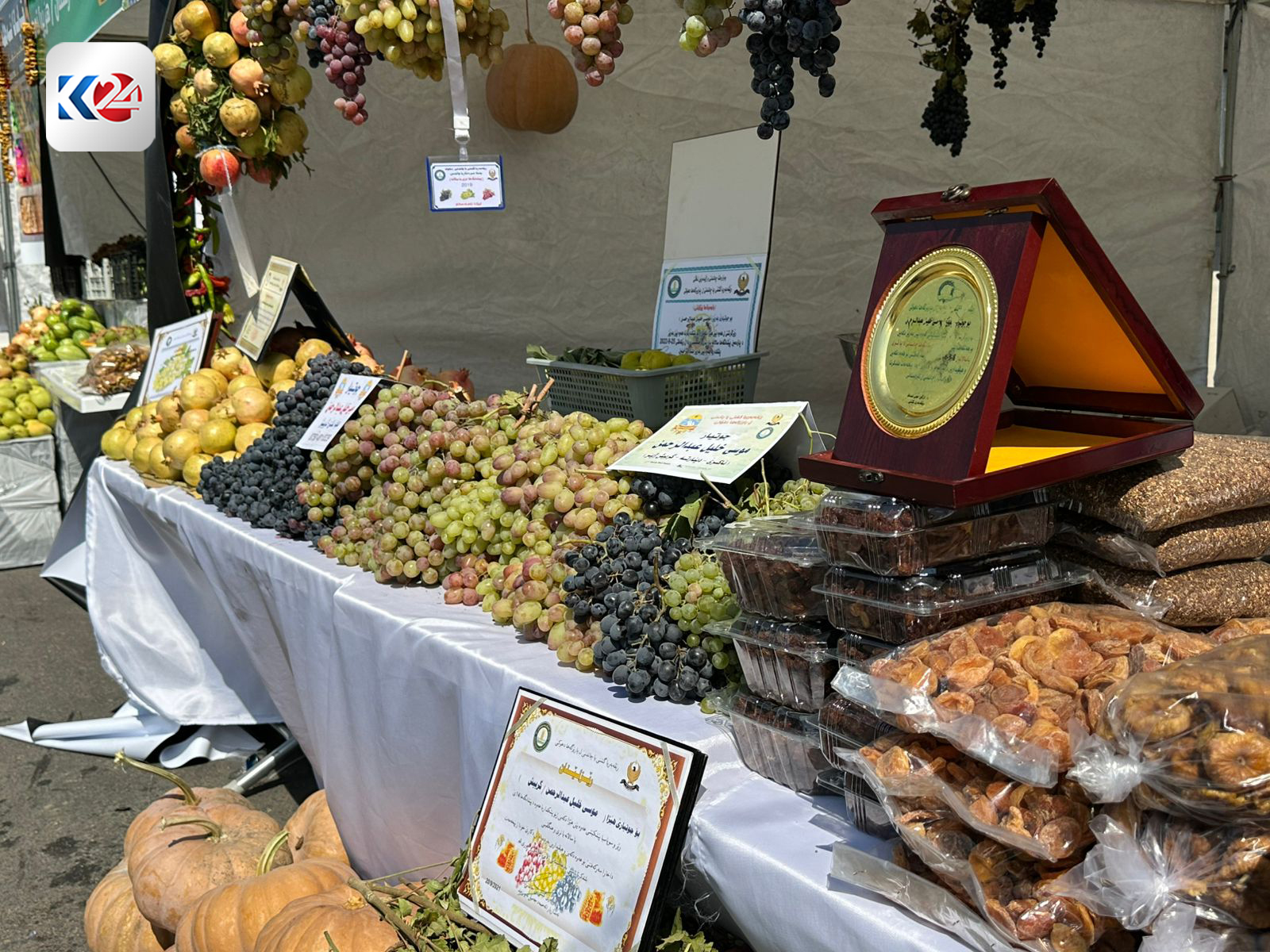Akre Hosts Second Local Produce Festival as Farmers Showcase Agricultural Wealth
Akre hosts its second local produce festival, featuring over 70 farmers and traders showcasing rice, figs, honey, and sumac. The event highlights the region's agricultural strength and the KRG's push to expand domestic and international exports.

Erbil (Kurdistan24) – The second Akre Festival for Local Products opened its doors on Thursday, in the heart of the historic town of Akre, with more than 70 farmers, traders, and food companies participating in a three-day exhibition designed to highlight the region’s rich agricultural output.
The festival began at 12:00 p.m. in the central square of Akre and will run until midnight on Saturday, September 20. According to Fazil Mustafa, head of the Akre Agriculture Directorate, the event is open daily from noon until midnight, with expectations of a large turnout from across the Kurdistan Region. He confirmed that more than 70 farmers and traders, along with five food companies, are showcasing their produce, while 70 booths have been prepared to display and market local goods from Akre and other parts of Kurdistan.
Among the wide array of products, farmers have brought Kurdish rice varieties including Sawar, Nook, and Paqla, alongside nuts, dried apricots, figs, and other seasonal crops. Farmer Rezwan Ramazan told Kurdistan24 that he brought more than five types of Kurdish rice, in addition to local specialties such as saawar, nouk, paqla, konji, danqoot, and apricots. He expressed optimism that the festival will lead to strong sales, noting that “demand for Akre’s produce has always been high.”
Haji Hikmet, a well-known beekeeper in the area, praised the Kurdistan Regional Government (KRG) for organizing the festival, describing it to Kurdistan24 as “a vital opportunity for us to market our honey and other produce.” He likened the festival to “a store where, in just a short period of time, we can sell what we have labored for all year long.”
Akre, located in Duhok province, is widely recognized for its fertile soil, favorable climate, and abundant water resources, making it one of Kurdistan’s most agriculturally productive regions. Its produce not only meets local needs but is also transported to other areas of the Kurdistan Region and exported abroad. Factories such as “Aryas” process and package Akre’s raw agricultural products, including rice, flour, and sumac, before sending them to domestic and foreign markets.
Earlier this summer, the district’s famed fig orchards reached peak harvest, producing several tons of fruit daily for distribution to Duhok and beyond. Last year, Akre produced more than 8,000 tons of figs, with the region now boasting more than 250,000 fig trees. Agricultural officials attribute the exceptional quality of the fruit to Akre’s unique climate and fertile land. Food expert Dr. Badr Surchi told Kurdistan24 that figs are considered a “miracle fruit,” valued not only for their flavor but also for their health benefits, which range from aiding digestion and reducing cholesterol to improving skin, bone health, and hair growth.
Beyond figs, Akre’s sumac has emerged as a sought-after commodity in both domestic and international markets. Earlier this month, local traders confirmed that 45 tons of high-quality red sumac were prepared for export to Türkiye, following an initial shipment of eight tons. Trader Masoud Mohammed Ali told Kurdistan24 that the export ensures good profits for farmers, with prices rising to more than 5,000 Iraqi dinars per kilogram, compared to previous years when lack of exports depressed local market prices.
Another trader, Sirwan, highlighted that Kurdish sumac is also being exported to China, Norway, Sweden, Denmark, Germany, Iran, and Jordan, with special interest this year in the famed Zebar sumac variety. The KRG has facilitated these exports through the Ibrahim Khalil border crossing and Erbil International Airport, as part of a broader initiative to expand Kurdish agricultural exports and reduce reliance on oil revenues.
The festival also underscores the KRG’s ongoing support for farmers and agricultural producers, which includes backing for the private sector to market local goods. Prime Minister Masrour Barzani’s ninth cabinet has prioritized agricultural diversification and exports, ensuring that products such as tomatoes, cucumbers, pomegranates, apples, and honey reach markets in the Gulf, Europe, and Asia. According to Hemin Sayed Murad, Director General of Agriculture in Erbil, more than 3,000 tons of fresh produce are exported daily from Kurdistan to Iraq and beyond.
At the same time, Akre is benefiting from significant infrastructure investments. In July 2024, the mayor of Akre, Bilind Reza, confirmed that eight projects worth more than 10 billion dinars were underway, including street repairs, schools, mosques, and other essential services across the district’s 25 neighborhoods and 22 villages. These projects reflect the KRG’s wider strategy to improve living standards while reinforcing the economic foundation of agricultural towns such as Akre.
The Akre Local Products Festival highlights not only the economic potential of Kurdish agriculture but also its cultural value. Farmers, traders, and families see the event as a celebration of their identity and traditions, bringing together the fruits of a year’s labor. For Akre’s residents, the festival is both a market and a stage, reaffirming the district’s place as one of the Kurdistan Region’s most vital agricultural hubs, where figs, honey, rice, and sumac symbolize the richness of the land and the resilience of its people.

